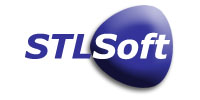


|

|
|
|
|
The distribution is in the form of a zip file, e.g. b64-1.1.1.zip which you should extract (recursively) to a location of your choice, e.g. c:\opensrc\b64\1.1, or ~/opensrc/b64/1.1, which will be referred to in the subsequent documentation as <B64-install-dir>.
build directory. For example, the makefile for Borland C/C++ v5.6 is in build/vc6. Since Borland is only supported on Windows, there is a single makefile called makefile.Hence, to build b64 for Borland C/C++ 5.6 you need open a Windows command box (with the environment set up for the compiler and linker) and execute the following command:
<B64-install-dir>\build\bc56> make -f makefile
or just:
<B64-install-dir>\build\bc56> make
<B64-install-dir>/build/gcc34makefile.unix and makefile.win32 are provided. Most make tools require that you explicitly specify the makefile name (using -f) to use such makefiles, e.g. make -f makefile.unix.STLSOFT: it specifies -I%STLSOFT%/include (Windows) / -I$STLSOFT/include (UNIX) to the compiler for C++ compilation. If the STLSOFT environment variable is not defined or does not correspond to an installation of STLSoft, then the build will fail, although it will successfully build the core library and the C samples and test programs.
Just open the workspace file b64_vc6.dsw, located in the root directory (i.e. <B64-install-dir>), and select the Build-All option.
For example, if you are using the Borland compiler, version 5.6, you would link to the library b64.1.bc56.debug.lib in a debug build and b64.1.bc56.lib in a release build. Say you wish to compile and build the example.c.1.c sample, that resides in <B64-install-dir>\samples\c\example.c.1.c.
You could compile it:
<B64-install-dir>\samples\c\example.c.1.c6> bcc32 -c -I..\..\..\include
and then link it:
<B64-install-dir>\samples\c\example.c.1.c6> bcc32 -L..\..\..\lib example.c.1.obj b64.1.bc56.lib
With most compilers, you can do this in one step, as in:
<B64-install-dir>\samples\c\example.c.1.c6> bcc32 -I..\..\..\include -L..\..\..\lib example.c.1.c b64.1.bc56.lib
#include the file <b64/implicit_link.h> in the file that is using the b64 library, as in:
#include <b64/b64.h>
#include <b64/implicit_link.h>
int main()
{
int ints[] = { 1, 2, 3, 4, 5, 6, 7, 8, 9, 10 };
size_t cch = b64_encode(&ints[0], sizeof(ints), NULL, 0); /* Ask for length required */
char *enc = (char*)malloc(cch); /* No error checking here ... real code must do so */
b64_encode(&ints[0], sizeof(ints), enc, cch);
printf("Converted: %.*s\n", cch, enc);
return 0;
}
When you compile and link this file you will not have to specify the library name. You will still have to specify the library path, however, if it is not in the default linker path(s) for your compiler/linker. The above example reduces to:
<B64-install-dir>\samples\c\example.c.1.c6> bcc32 -I..\..\..\include -L..\..\..\lib example.c.1.c
but not to:
<B64-install-dir>\samples\c\example.c.1.c6> bcc32 -I..\..\..\include example.c.1.c
(whereupon the compiler will complain about not knowing the location of b64.1.bc56.lib).
There are two advantages of implicit linking:
Note: In both cases above (indeed, in all cases), you do need to provide the linker with the library directories if they do not reside in the default linker path(s) for your compiler/linker
|
|
| b64 Library documentation © Synesis Software Pty Ltd, 2004-2007 |